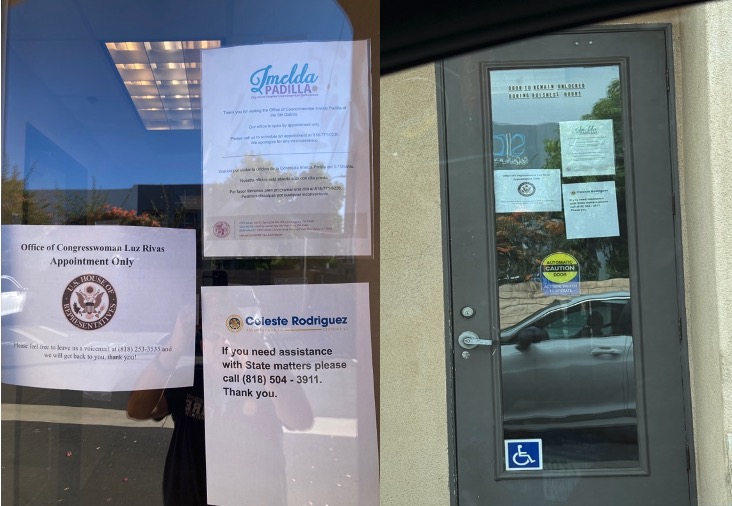Comments
CD6 - Residents in Los Angeles council district six are raising urgent concerns about the lack of transparency, notification, and outreach surrounding major projects and council motions. Many feel that significant initiatives are advancing without adequate public awareness or meaningful opportunities for input, leaving neighborhoods blindsided by decisions that directly affect them.
Projects such as the Tiny Homes at the Sun Valley Metrolink Station (CF 25-0396), the 17100 Victory Blvd Housing Partners Project (CF 25-0920), and the Lake Balboa Park and Ride Project (CF 25-0742) illustrate the problem. The district has claimed that outreach was conducted and that “no public comments” were received. But residents counter that hearings were poorly publicized, if they were held at all. Without proper notification, it is hardly surprising that turnout and participation were negligible. The pattern suggests a troubling disconnect between City Hall and the people it is mandated to serve.
Community members are demanding straightforward answers. When and where were these hearings held? How were residents notified or invited to provide feedback? And, perhaps most tellingly, how many community members actually participated? These are not minor technical questions. They go to the heart of whether the public is genuinely being included in decision-making or whether community engagement has become little more than a box to check after the fact.
Adding to the frustration is the lack of communication through the most basic channels. Residents point out that district newsletters and the official council district six website rarely mention these high-stakes projects, motions, or hearings. For many, this absence is not accidental - it feels deliberate, as though the less the public knows, the easier it becomes to push projects forward without resistance. If local government fails to inform the people it represents, what good is the promise of public input?
Neighborhood councils such as Lake Balboa and Sun Valley Area do their part by holding monthly meetings with agendas posted 72 hours in advance. But residents rightly ask: is this enough to reach the full community? When projects involve tens of millions of taxpayer dollars, a few notices on a website and a single meeting cannot be considered robust outreach. The burden falls on the council office itself to ensure that the public is aware, informed, and invited to participate before, not after, decisions are made.
This gap in communication undermines public trust at a time when confidence in City Hall is already low. Council members often speak about openness, accountability, and accessibility, yet these words ring hollow if projects continue to advance behind closed doors. Residents from Sun Valley and Lake Balboa are calling for specific reforms:
Regular and detailed updates on the council district’s website and newsletters;
Early, widely publicized, and accessible public hearings;
Clear records of community attendance, input, and follow-up action.
Without these safeguards, transparency becomes little more than a talking point, not a governing principle.
Another issue deepening frustration is the continued closure of the CD6 district office to the general public. Currently, the office operates by appointment only, following an alleged homeless attack at the premises. While safety is an understandable concern, residents question whether it is lawful or ethical for a government office to maintain such restrictions indefinitely. Public offices exist to serve the people, not to close their doors to them. If schools, libraries, and other public institutions can remain open while implementing security protocols, then surely a council office can as well. By remaining closed, CD6 reinforces the perception that residents are being deliberately kept at arm’s length.

The message from the communities of Sun Valley and Lake Balboa is consistent and clear: residents want meaningful participation, not token gestures. They want to see local government engage in attentive listening, transparent collaboration, and honest dialogue. They want reassurance that decisions are being made in the best interests of all district residents, not in service of political expediency or narrow interests.
If these concerns are ignored, the consequences will extend beyond frustration. A lack of transparency breeds misinformation, fuels rumors, and erodes confidence in public institutions. At a time when trust in government is fragile, council district six cannot afford to alienate the very residents it is meant to represent.
It is time for council district six to meet its obligation. Transparency is not optional - it is the foundation of democracy. Residents deserve open doors, open communication, and a seat at the table before decisions are made, not after. Anything less is a failure of leadership.
(Mariam Moore is the CEO of The Climate Corps Initiative (TCCI), the first environmental non-profit organization dedicated to advocate for environmental justice in Sun Valley and adjacent areas. She is also a resident of Sun Valley, community and public health advocate, and an environmental activist. She is a volunteer at CPAB and a public servant.)
(Mihran Kalaydjian has over twenty years of public affairs, government relations, legislative affairs, public policy, community relations and strategic communications experience. He is a leading member of the community and a devoted civic engagement activist for education spearheading numerous academic initiatives in local political forums. Mihran is also the Vice President of TCCI)






